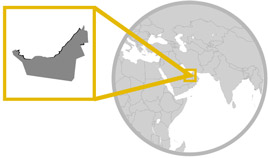Divided into three stages with multiple grades per stage, how mandatory education in Brazil is changes at each stage, with Pre-school Education being available but not mandatory, Primary school being mandatory and Higher education not being mandatory.
Pre-school Education is completely optional but has been proven to significantly help develop children below the age of 6 in all areas including cognitive, motor and social skills. These institutions include Day Nurseries for children under 2, Kindergartens for children between 2 and 3, and Preschools for children between 4 and 5. Upon turning 6 a child moves on into Primary school.
Primary Education is split into nine years and supports mainly children between the ages of 6 and 18, but will take both students under 6 if the child turns 6 during the semester, and adults over 18 if they haven’t finished their education, although they are separated from the children. These schools teach the Portuguese Language, History, Geography, Science, Mathematics and Arts as well as Physical Education for those in the 2
nd to 5
th years and one to two foreign languages, usual Spanish and/or English, for those in the 6
th to 9
th years. Each school year lasts at least 200 days and must provide at least 800 hours of activities per year.
After graduating from Primary education, students may choose to pursue Higher Education and they will, in turn, have to take an entrance examination for their specific course of study. After finishing the exam, the top 30 to 40 candidates for each university per course typically move on to study at the course, however, this number can be as high as 200 in some rare cases. Higher Education can be divided into Undergraduate and Graduate work like in most countries, and features an undergraduate Bachelor Degree lasting for around 4 years, as well as teaching courses which last an additional 4 years and medical degrees lasting for around 6 years and often include a two-to-five year residential placement in a hospital or medical facility. Additionally, five year degrees leading into professional diplomas are awarded in state-controlled careers in architecture, veterinary medicine, law, psychology and engineering.
Following graduation from a Bachelor’s Degree or a Professional Diploma, a student may enter graduate school and undertake a Master’s Degree lasting two years, additionally requiring the submission of a master’s thesis. Following this a Doctoral Degree is available for many lines of study, requiring four years of full-time studies and requiring the submission of a doctoral dissertation, the passing of a doctoral qualifying exam and extensive coursework. Throughout Brazil there are over 2600 universities and higher education institutions.

